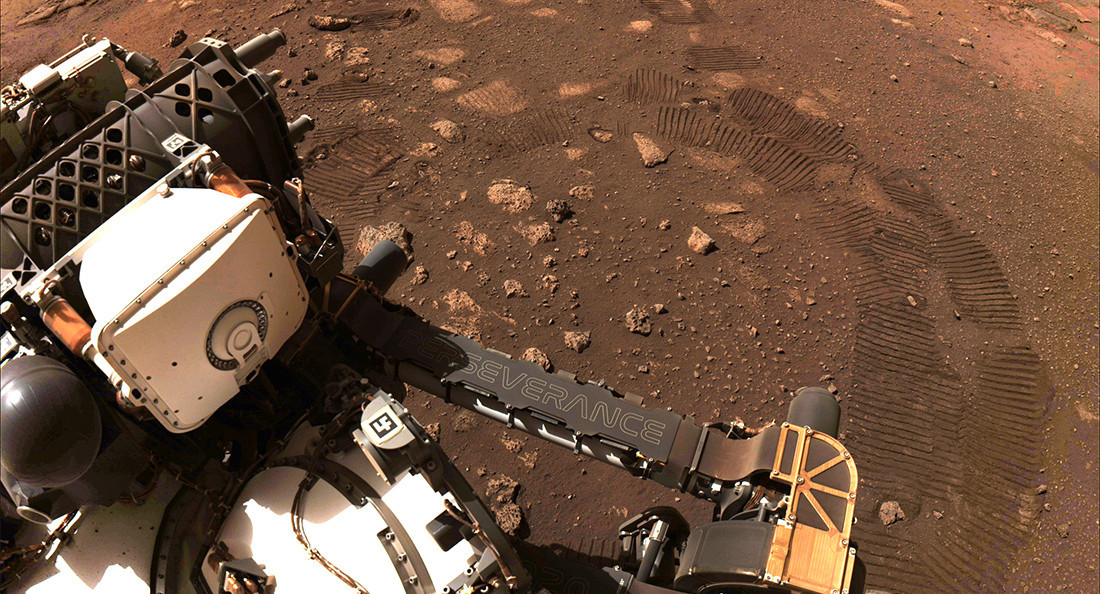Out-of-this-world research activity
U of W team part of Mars rover project
On Feb. 18, NASA’s Perseverance rover landed on Mars after a nearly seven-month journey from Earth. The preparation for a project of this astronomical scale, however, required a much longer journey and an international network of scientists and engineers. The University of Winnipeg’s (U of W) Ed Cloutis and his student researchers were part of this team.
Cloutis’ group “played a key role in testing some of the on-board camera technology” used by Perseverance, according to a U of W press release. This includes the cameras used to capture many of the images that have been publicly released since February.
“I got involved with the Perseverance mission back in 2013, when it was first proposed,” Cloutis, a professor of geography and director of the U of W’s Planetary Spectrophotometer Facility, says.
“Most of the work that I’ve been doing has been ... testing the calibration targets,” he says.
“If you look at the rover, you’ll see that there are various coloured chips on it,” Cloutis explains, “and part of what we did is that we have a chamber at the U of W where we can simulate the surface conditions on Mars ... so that when they get to Mars, they don’t change.”
To help Cloutis with this and other aspects of the Perseverance project, he recruited a team of U of W students. Among them are Stephanie Connell and Nathalie Turenne.
“I’ve done spectroscopy and some pre-mission training, which is testing things out before the rover actually lands on Mars,” Connell says. She is also working a few shifts on the actual mission.
“I will start off by shadowing a (NASA) employee, and I’m really excited to be working a real mission,” she says.
Connell is an environmental-science student. “The thing about environmental sciences is that you learn so much about our planet that you can apply those same principles to other planets in our solar system,” she says.
Because the U of W is an undergraduate-focused university, there is a real culture of research opportunities for students in these streams.
“I think it’s really important that undergrads try to get these (research jobs), because it can set you up really nicely for grad school,” Connell says, adding that “if there’s a professor that you think is interesting or you’re interested in their research, ask them, because there are a lot of them who are looking for undergrad students.”
Turenne agrees and says her interest in the project brought her onboard.
“This opportunity to get involved with the Perseverance rover last summer sounded really cool, so I just applied,” she says. Like Connell, Turenne is working on many facets of this project.
“For the cameras, I’m part of a science support team that gets downlink image data,” she says. “We look at the data products that we can make, and I’m specifically documenting what’s happening during those shifts.”
Cloutis, when asked what he thinks about two of his students involved in the operations of a Mars rover, chuckles and says “I’m hoping it’s interesting and not really boring, but it sounds like they’re having a good time.”
Published in Volume 75, Number 21 of The Uniter (March 11, 2021)







